The University of Chicago Press, Chicago 60637
The University of Chicago Press, Ltd., London
2021 by The University of Chicago
All rights reserved. No part of this book may be used or reproduced in any manner whatsoever without written permission, except in the case of brief quotations in critical articles and reviews. For more information, contact the University of Chicago Press, 1427 East 60th Street, Chicago, IL 60637.
Published 2021
Printed in the United States of America
30 29 28 27 26 25 24 23 22 21 1 2 3 4 5
ISBN-13: 978-0-226-66869-7 (cloth)
ISBN-13: 978-0-226-76110-7 (paper)
ISBN-13: 978-0-226-76124-4 (e-book)
DOI: https://doi.org/10.7208/chicago/9780226761244.001.0001
Library of Congress Cataloging-in-Publication Data
Names: Love, Heather, author.
Title: Underdogs : social deviance and queer theory / Heather Love.
Other titles: Social deviance and queer theory
Description: Chicago ; London : The University of Chicago Press, 2021. | Includes bibliographical references and index.
Identifiers: LCCN 2020030291 | ISBN 9780226668697 (cloth) | ISBN 9780226761107 (paperback) | ISBN 9780226761244 (ebook)
Subjects: LCSH: Queer theoryHistory. | Deviant behaviorResearchUnited StatesHistory20th century. | SociologyUnited StatesHistory20th century.
Classification: LCC HQ76.25 .L683 2021 | DDC 306.7601dc23
LC record available at https://lccn.loc.gov/2020030291

This paper meets the requirements of ANSI / NISO Z39.48-1992 (Permanence of Paper).
My sociological reference group was clearly of the naturalist-ethnographic-underdog school.
Laud Humphreys, Tearoom Trade
This book offers a genealogy of queer theory, tracing its roots in American social science from the period after World War II. It is a story that has been told before by social scientists, for whom the connection is evident. This has not been the case for queer scholars in the humanities, who see few links between queer inquiry and empirical research on marginal sex practices and communities in the era before Stonewall. Having been trained in the philosophical version of queer theory that emerged in the late 1980s and early 1990s, I was slow to acknowledge the connection. Queer theory seemed to change everything, not only challenging gender and sexual norms but also the nature of scholarship itself, allying it with activism and popular protest. From this vantage, with gender relations laid out for view and apparently up for grabs, it was hard to see the interest of community studies of queers and peers or of the careful mapping of vice districts in urban centers. Underdogs records the results of my reeducation, which has not turned me away from queer thought so much as it has made me see the necessity of integrating it with earlier approaches in the history of sexuality. Queer thought, even at its most critical and utopian, owes a great deal to studies of social deviance conducted in the postwar period. This claim is true, as I will argue, not just in the general sense of creating the conditions in which queer thought might flourish. It is also true more directly: deviance studies contributed ideas and frameworks that appeared as if newly minted in 1990.
My inability to appreciate such connections before is not merely an individual failing. Rather, it is part of the ruling mythology of the field of queer studies, which has understood itself as existing outside of traditional academic lines of influence. According to this view, the roots of queer theory should be located in activist ferment and traditions of radicalism coming out of the AIDS crisis, the womens health movement, in debates in feminism, and in movements for gay and trans liberation that emerged in the late 1960s. These were indeed crucial sources for the field, feeding its confrontational politics, its most sweeping challenges to heteronormativity, and its flouting of academic decorum. But queer theory was never merely an outsider to the academic world, even as it refused to play by its rules. It was also an inheritor of many traditions within the academy. While some of these influences were eagerly embracedMarxism, poststructuralism, feminism, psychoanalysis, Foucauldian analysis of power and languageothers, such as deviance studies, social interactionism, and microsociology, were incorporated without fanfare. It is my strong conviction that queer scholars should acknowledge these legacies at last.
This is not a heroic origin story, or even one that is very comfortable to tell. The critique of queer theory as mired in class, racial, and national privilege is in some measure bolstered by delving into the fields roots in American social science. The aim of this narrative is not to justify the field or to exonerate it, however. For many readers, it will have the opposite effect, amplifying yet further a well-established critique of the field. Although I acknowledge the justness of many of these arguments, it is not in the service of a critique of queer theory that Underdogs marshals its evidence. I remain invested in the field both intellectually and politically, and do not see its links to older forms of scholarship as necessarily damning. Rather, my aim is to inquire more deeply into aspects of queer thought that have proven contentious: its stance against identity and legislative politics; its universalism and its comparative reach; its focus on individual experience, small-scale interactions, and the politics of gesture and self-presentation; its focus on the impact of homophobia, rather than more positive aspects of queer culture; and its reliance on strategies of exposure to shake the hold of gender and sexual norms. These aspects of queer thought, so marked by their emergence at the end of the twentieth century, have in each case important precedents in midcentury sociology. Determining what aspects of queer thought continue to be salient and effective in the twenty-first century depends on a reckoning with this past.
Queer scholars unwillingness to recognize the influence of midcentury social scientists is not surprising. Because of the changes in US social life from the 1960s onward, research about sexual and gender minorities by experts in the human sciences would seem to have little in common with research by those who identified themselves as such. This shift led to a major movement against sexual and gender normativity. In this sense, the birth of queer theory was a clear political advance, a declaration of independence from apologetic studies of homosexuality. But looking more closely at this history proves that the transition from studies of sexuality to queer theory was less a clean break than a complex process of debt and disavowal.
To the extent that this earlier scholarship has been acknowledged, it has been as a deeply limited and incomplete precursor. Doing this work, I realized how much I had underestimated a previous era of scholarship, crediting secondhand accounts of works rather than reading them for myself. Instead of seeing midcentury empirical scholarship as a less enlightened version of our own, I began to see in it a robust and meaningful alternative to the queer account of politics. What had appeared as a straightforward narrative of political progress turned out to be a profound difference in the understanding of what counted as political. While queer scholars and activists worked to challenge the categories by which we define ourselves, empirical researchers in the postwar period sought to establish categories in order to make space for behavior considered illegitimate.


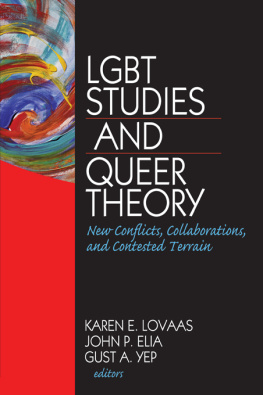
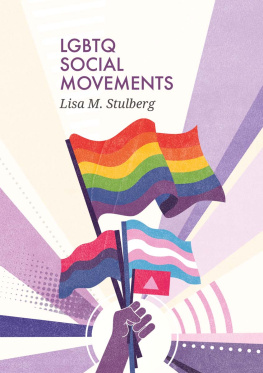
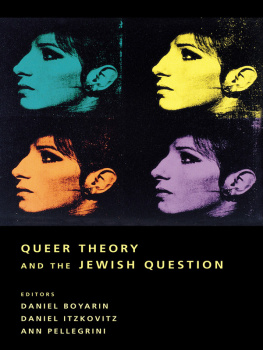
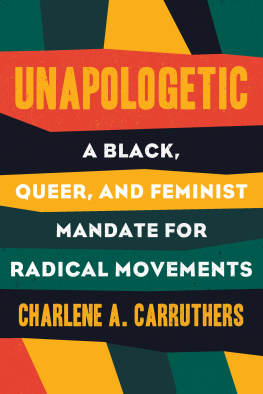
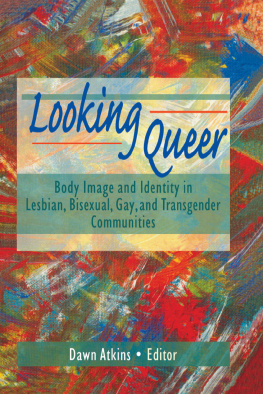
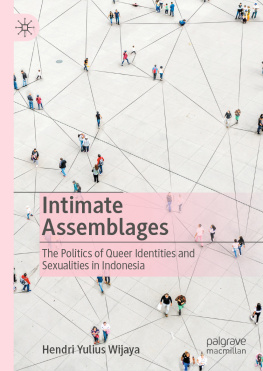
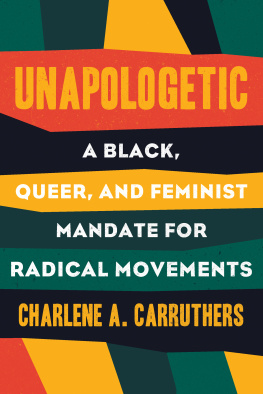
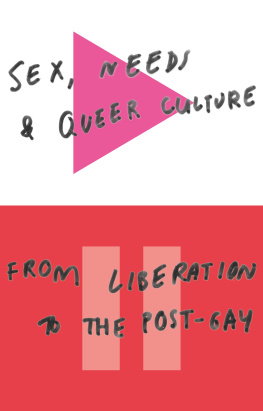
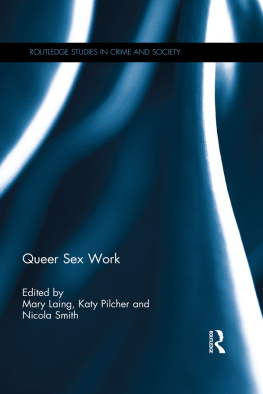

 This paper meets the requirements of ANSI / NISO Z39.48-1992 (Permanence of Paper).
This paper meets the requirements of ANSI / NISO Z39.48-1992 (Permanence of Paper).